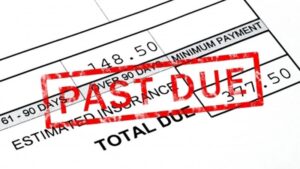Creditors vulnerable without winding-up petitions

The UK Government’s decision to extend the temporary restrictions on statutory demands and winding-up petitions for Covid-19 related debts until 31 December 2020 offers some reprieve for hundreds of thousands SMEs.
However, statutory demands and winding-up petitions are essential to debt enforcement and insolvency proceedings.
Consequently, it’s difficult to fathom how prohibiting creditors from engaging in standard debt enforcement procedures for 6 months could result in anything but dire consequences.
Considering the circumstances, some company directors and business owners will, understandably, become desperate and make irrational decisions. They will try to obtain more credit so they can:
- Sell goods cheaply
- Increase cash flow
- Continue to trade
But this behaviour is speculative, and can easily lead to recklessness at the expense of suppliers who never receive payment. Consequently, it’s sometimes better to let 1 company fail if it means saving lots of others.
Statutory demands and winding-up petitions are essential to debt enforcement and insolvency proceedings
For example, it would be unfortunate if a struggling company collapsed in July 2020 owing creditors £100,000. But it would be much worse if that company were to:
- Continue trading until 31 December 2020
- Obtain £400,000 in credit
- Collapse in January 2021
The Government deserves credit for taking action. But allowing hundreds of thousands of struggling and zombie companies to continue trading for an unspecified time without any debt enforcement measures is a recipe for disaster because when they fail they’re more likely to bring other businesses down with them.
The Government doesn’t want to see more people unemployed and businesses fail, but the current policy simply delays the inevitable.
This strategy could even be counterproductive, exasperating the problem like a snowball gathering momentum as unemployment increases and more businesses collapse.
It’s a cold hard truth, but sometimes it’s better to let failing companies fail. By extending the restrictions on statutory demands and winding-up petitions until the end of the year, the Government is simply kicking the can down the road, which will lead to a greater number of economic casualties in the end.
Debtor Alert: Theodore Global Ltd
Theodore Global Ltd: A Company That Fails to Pay Its Staff and Trades While Insolvent If you’re thinking about working with, or for Theodore Global…
Read MoreIrene MacKenzie- The Gatekeeper of Silence
Irene MacKenzie and the Web Around William Jackson In the shadows of the alternative investment world, where buzzwords are abundant but redemptions are not, one…
Read MoreBilly Jackson Update Part 2: Companies of Interest
In our last blog on Billy Jackson, we exposed the web of enablers supporting his business operations. In this follow-up, we turn the spotlight on…
Read MoreThe Grim Truth for Loan Note Holders -79th Luxury Living Six Ltd (LL6)
No assets or safeguards. No clear path to recovery. If you’re one of the many investors who entrusted your money to The 79th Group’s loan…
Read More



